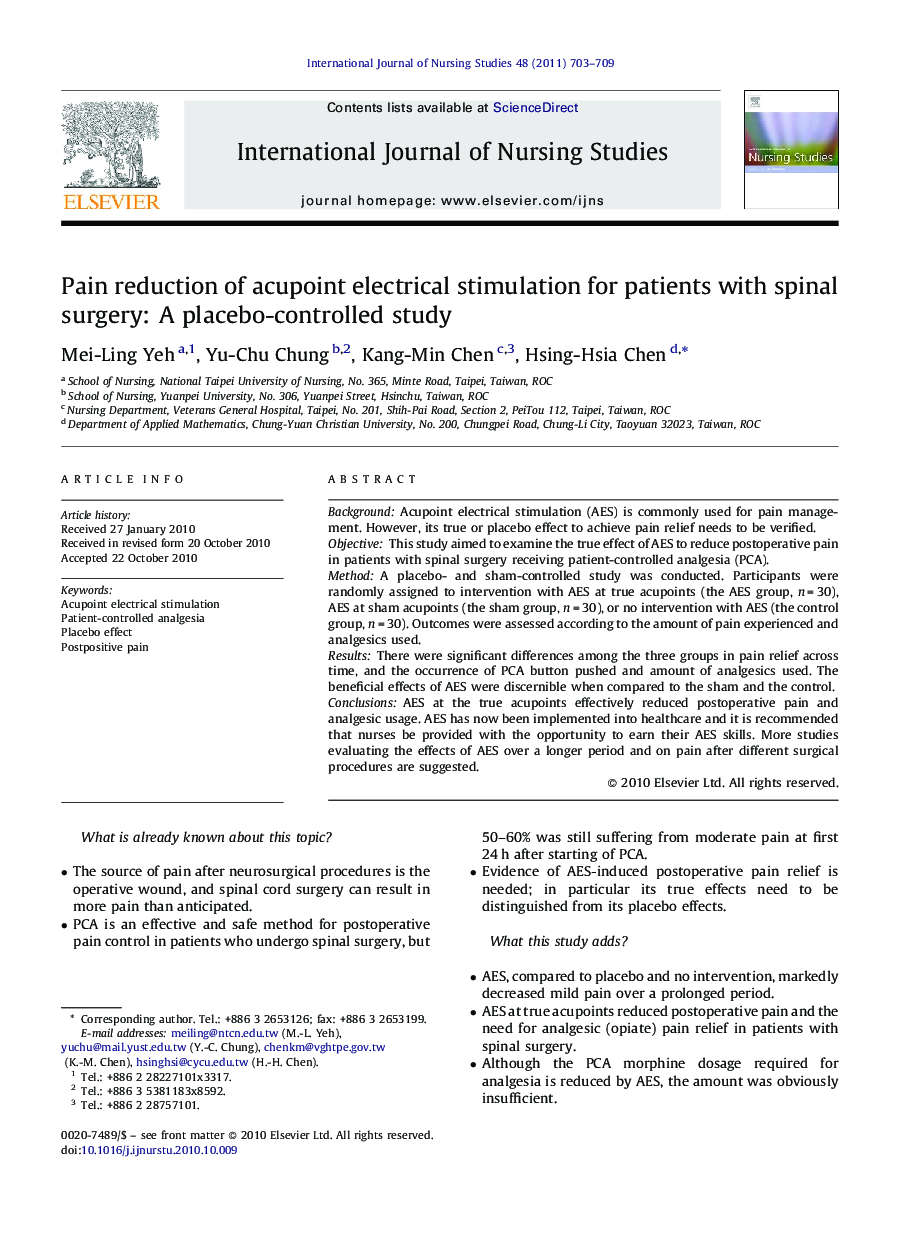| Article ID | Journal | Published Year | Pages | File Type |
|---|---|---|---|---|
| 1076897 | International Journal of Nursing Studies | 2011 | 7 Pages |
BackgroundAcupoint electrical stimulation (AES) is commonly used for pain management. However, its true or placebo effect to achieve pain relief needs to be verified.ObjectiveThis study aimed to examine the true effect of AES to reduce postoperative pain in patients with spinal surgery receiving patient-controlled analgesia (PCA).MethodA placebo- and sham-controlled study was conducted. Participants were randomly assigned to intervention with AES at true acupoints (the AES group, n = 30), AES at sham acupoints (the sham group, n = 30), or no intervention with AES (the control group, n = 30). Outcomes were assessed according to the amount of pain experienced and analgesics used.ResultsThere were significant differences among the three groups in pain relief across time, and the occurrence of PCA button pushed and amount of analgesics used. The beneficial effects of AES were discernible when compared to the sham and the control.ConclusionsAES at the true acupoints effectively reduced postoperative pain and analgesic usage. AES has now been implemented into healthcare and it is recommended that nurses be provided with the opportunity to earn their AES skills. More studies evaluating the effects of AES over a longer period and on pain after different surgical procedures are suggested.
